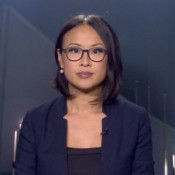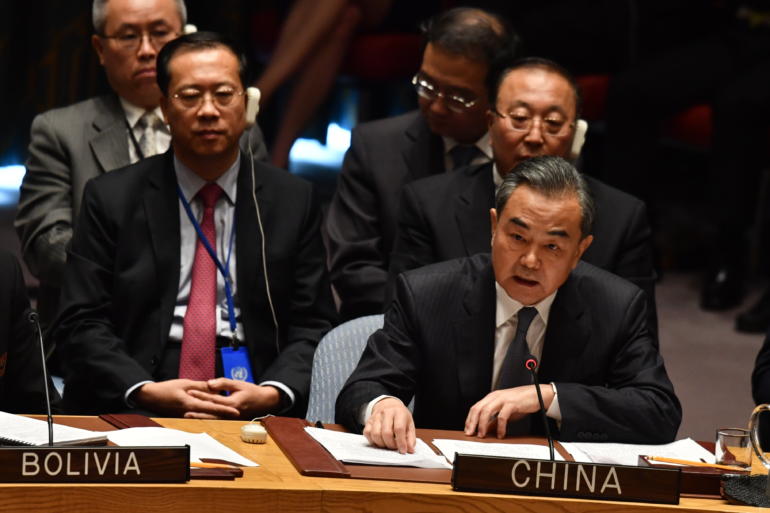China will have its turn at the United Nations lectern in two days.
CGTN’s Liling Tan explains how Chinese Foreign Minister Wang Yi has been working the sidelines in the days leading up.
At a high-level U.N. Security Council meeting hosted by U.S. President Donald Trump, the focus was on weapons of mass destruction. Chinese Foreign Minister Wang Yi welcomed the major progress made over the Korean peninsula.
“China supports the important common understandings reached between the DPRK and U.S. leaders at the Singapore summit, and support the DPRK and ROK in improving their relations,” he said. “We call upon all parties to seize the current opportunities, turn the political consensus into concrete actions, and work in the direction of setting up a peace mechanism on the peninsula and the denuclearization on the peninsula-to realize lasting peace on the peninsula at an early date.”
China may not be a primary party to the talks between the two Koreas and between Pyongyang and Washington, but given China’s historical ties with the Democratic People’s Republic of Korea (DPRK), Beijing is a stakeholder.
At the Security Council this year, we’ve seen Beijing, as well Moscow, push for the easing of sanctions on the DPRK, to reward Pyongyang for opening dialogue and suspending nuclear and ballistic missile tests. However, the U.S. has maintained that sanctions must stay until Pyongyang takes concrete steps toward denuclearization.
On Tuesday, Foreign Minister Wang Yi’s bilateral meetings included one with the DPRK’s Foreign Minister, Ri Yong Ho, and another with Foreign Minister of the Republic of Korea, Kong Kyung-wha.
Stephen Noerper of the Korea Society says China, which does not believe further sanctions on Pyongyang is necessary, wants to “appear supportive, but also a necessary force for forward progress.”
“The reality now is that China and the United States are the two, large powers whose interests converge on the peninsula, along with Russia and Japan. But with the war realities, and the end-of-war, and the idea of a forward-leaning statement, one would think it would bring China into the fold,” Noerper said. “The Koreans have said it can either be three parties – the United States, North Korea, and South Korea, which is not a signatory to the Armistice, but they’ve also said by necessity probably China, too. So, probably those four.”
Wang Yi also attended a high-level event on the Paris Climate Accord. He met with his counterparts from Germany, Ecuador, and the Gulf Cooperation Council. However, the DPRK will be back on the agenda Thursday, when Wang Yi attends a special security council session on DPRK sanctions and the denuclearization talks. This session will be chaired by U.S. Secretary of State Mike Pompeo.
Song Zhang discusses Trump’s claims of Chinese election meddling
CGTN’s Asieh Namdar spoke to Song Zhang about the deepening hostilities between the U.S. and China. Zhang is the chief correspondent for Shanghai Wen Hui Daily’s Washington, D.C. bureau.
 CGTN America
CGTN America
 Chinese Foreign Minister Wang Yi speaks during the United Nations Security Council briefing on counter-proliferation at the United Nations in New York on the second day of the UN General Assembly September 26, 2018. (AFP PHOTO / Nicholas Kamm)
Chinese Foreign Minister Wang Yi speaks during the United Nations Security Council briefing on counter-proliferation at the United Nations in New York on the second day of the UN General Assembly September 26, 2018. (AFP PHOTO / Nicholas Kamm)
